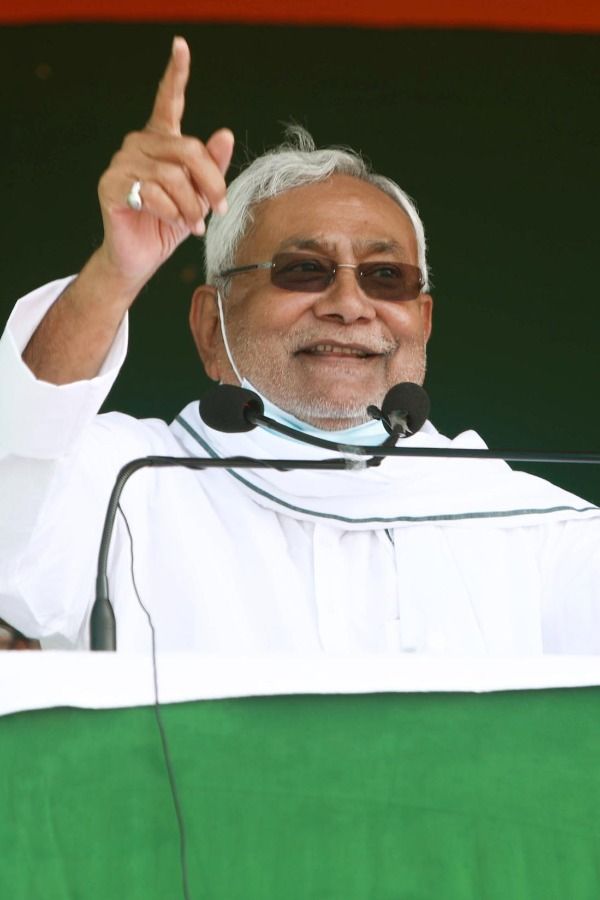Nitish Kumar: A Complete Biography and His Impact on Society
Introduction
Nitish Kumar is a seasoned Indian politician and the Chief Minister of Bihar. Known for his focus on governance, infrastructure, and social welfare, he has played a vital role in the development of Bihar. This article provides an in-depth look into his life, achievements, and impact on society.
Early Life and Background
Nitish Kumar was born on March 1, 1951, in Bakhtiyarpur, Bihar. He pursued an engineering degree from the Bihar College of Engineering (now NIT Patna) before embarking on a political career. His early political engagements were influenced by socialist ideals and the leadership of Jayaprakash Narayan.
Political Journey
Nitish Kumar’s political journey is marked by his pragmatic approach to governance and coalition-building skills. Some key milestones include:
- Elected as an MLA from Harnaut in 1985.
- Served as a Union Minister in various portfolios, including Railways and Agriculture.
- Became the Chief Minister of Bihar in 2005 and has served multiple terms.
- Instrumental in implementing key governance reforms and development projects.
His leadership is recognized for its focus on law and order, infrastructure, and social welfare programs.
Achievements and Contributions
Nitish Kumar’s tenure as Chief Minister has led to significant advancements in Bihar. Some of his notable contributions include:
- Governance Reforms:
- Introduced measures to curb corruption and improve transparency.
- Strengthened local governance through the Panchayati Raj system.
- Infrastructure Development:
- Expanded road connectivity across rural and urban areas.
- Improved access to electricity and sanitation facilities.
- Social Welfare Schemes:
- Launched programs like the ‘Bicycle Scheme’ for girl students to promote education.
- Implemented the ‘Saat Nischay’ (Seven Resolves) initiative to uplift the underprivileged.
Daily Life and Leadership Style
Nitish Kumar is known for his disciplined and efficient leadership style. His daily routine includes:
- Reviewing key development projects.
- Holding regular meetings with officials and the public.
- Advocating for policies that align with Bihar’s growth and development.
His commitment to good governance has earned him respect and support across various communities.
Significance of Kumar in Indian Politics
Nitish Kumar’s leadership is significant for its emphasis on:
- Balancing development with social justice.
- Coalition politics at the national level.
- Policy-driven governance aimed at long-term progress.
Observance and Popularity
Nitish Kumar remains a popular leader, especially among the middle class and rural voters. His leadership is recognized through:
- Consistent electoral success.
- Public appreciation for welfare and infrastructure initiatives.
- Positive media coverage of governance reforms.
Interesting Facts About Kumar
- He is often referred to as the “Sushasan Babu” (Good Governance Man) of Bihar.
- His policies have led to a drastic reduction in crime rates in the state.
- He has maintained a non-controversial and development-focused public image.
How Kumar’s Leadership Impacts Society
His policies have positively impacted Bihar’s society by:
- Providing better educational opportunities.
- Improving public healthcare infrastructure.
- Boosting the state’s economy through investment-friendly policies.
FAQs About Kumar
Q1: What is Nitish Kumar’s current political role?
A: He currently serves as the Chief Minister of Bihar.
Q2: Which political party does he represent?
A: Nitish Kumar is the leader of the Janata Dal (United) [JD(U)].
Q3: What are his major focus areas?
A: Governance, infrastructure, and social welfare.
Wishing Kumar: How to Celebrate His Leadership
Supporters can celebrate his leadership by:
- Sharing appreciation messages on social media.
- Participating in community development initiatives inspired by his policies.
- Attending public events that showcase his achievements.
Conclusion
Nitish Kumar’s journey from an engineer to the Chief Minister of Bihar is truly inspiring. His leadership continues to transform Bihar through progressive policies and governance reforms.










